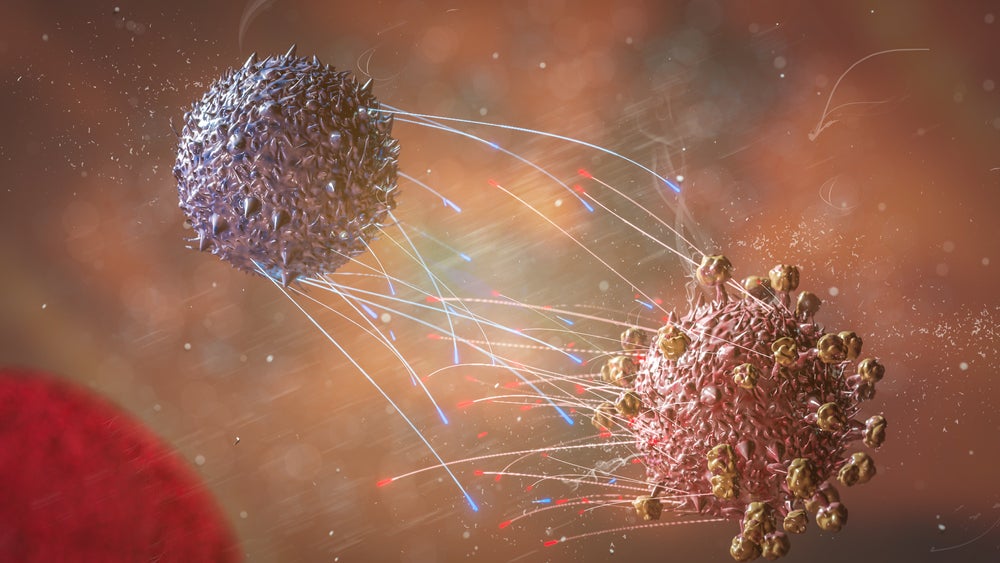US-based Candid Therapeutics has signed another T-cell engager (TCE) partnership, this time with Chinese biotech WuXi Biologics for the global rights to a preclinical asset.
Under the deal, Candid will have exclusive global rights to a tri-specific TCE discovered by WuXi using its WuXiBody platform. The Chinese company is set to receive an undisclosed upfront payment, as well as development and sales milestones totalling up to $925m.
Candid stated it plans to conduct first-in-human studies of the potential treatment in the first half of 2026.
The companies did not specifically reveal what indications the preclinical TCE could be used for, but Candid’s CEO Dr Ken Song said the deal means the US biotech now has “three T cell engager programmes targeting BCMA, CD20, and CD19 in or near clinical development”.
Song added: “We are excited to further the advances made by WuXi Biologics and to unlock the full potential of this molecule.”
TCEs are antibodies engineered to redirect the immune system's T cells to recognise and attack certain cells. Much of the modality’s emerging use has come in oncology, with cancer cells being the target. However, the immunotherapeutic can also be used to treat autoimmune diseases by targeting autoreactive B cells.
Candid has been pumping money into deals over the past year as it aims to become a self-confessed leader in TCEs for autoimmune and inflammatory diseases. The biotech signed a hat trick of research deals in December 2024 to bolster its pipeline. One of them, with EpimAb Biotherapeutics, is potentially worth more than $1bn depending on commercial milestones, while another with Nona Biosciences is worth up to $320m.
Candid emerged on the scene in September 2024 with a $370m Series A funding round and two lead assets. These candidates – CND106 and CND261 – remain the only two disclosed by the company in its pipeline. CND106 is a BCMAxCD3 bispecific antibody designed to target and eliminate later-stage B cells, which are responsible for producing harmful autoantibodies while CND261 targets a broad range of B-cell subtypes.
Candid has completed Phase I dose escalation in oncology patients for both candidates (NCT04735575 and NCT04923048) and is now developing them for unmet autoimmune disease needs.














